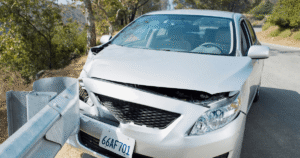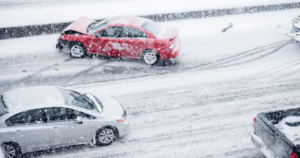Car accidents can cause injuries that are immediately obvious, such as cuts, broken bones, or whiplash. Others, however, may not appear until days later. Stomach pain is one of those symptoms people often dismiss, but it can signal serious underlying problems. If you notice abdominal discomfort after a collision – even if it feels minor – you should take it seriously.
Why Does Stomach Pain Appear Days After an Accident?
Not every injury is felt right away. Adrenaline released during a crash can mask pain, while internal damage sometimes develops slowly. This means abdominal symptoms may appear several hours or days later. Hidden injuries like internal bleeding, bruising to the organs, or inflammation can worsen over time if untreated.
Common Causes of Delayed Stomach Pain After an Accident
Abdominal discomfort can result from a variety of accident-related injuries, including:
- Seatbelt injuries: While seatbelts save lives, the restraint can press hard into the abdomen during impact, bruising soft tissues or internal organs.
- Internal bleeding: Damage to blood vessels in the abdomen may not cause immediate symptoms but can become dangerous if left untreated.
- Organ damage: The liver, spleen, and intestines are particularly vulnerable to trauma in a crash.
- Soft tissue injuries: Muscles and ligaments in the abdominal wall can stretch or tear under sudden force.
These injuries may begin with mild soreness but progress to more severe pain, dizziness, or nausea. Because of the risk of complications, evaluation by a doctor is always recommended.
What Are the Symptoms of Delayed Stomach Pain?
Stomach pain after a collision can take many forms. Signs that something may be wrong include:
- Persistent or worsening abdominal pain that does not improve with rest.
- Nausea, vomiting, or bloating that comes on unexpectedly.
- Bruising or tenderness across the stomach or sides.
- Dizziness, fainting, or low energy that may indicate blood loss.
- Difficulty breathing or chest discomfort that can sometimes be linked to abdominal trauma.
Any of these symptoms can be a warning sign that internal injuries are present. Even if the discomfort seems minor, medical professionals can detect problems before they become severe.
Immediate Steps to Take After Noticing Delayed Stomach Pain
If you begin to feel abdominal pain in the days following a crash, consider these actions:
- Seek medical care right away. Emergency treatment may be necessary if symptoms worsen quickly.
- Keep track of symptoms. Noting when pain began, how it feels, and whether it is spreading can help your doctor diagnose the problem.
- Avoid strenuous activity. Physical strain may make internal injuries worse until a doctor gives clearance.
- Contact your insurance company and document the issue. Medical records tied to the accident help establish a link between the crash and your injuries.
Taking these steps ensures you receive the treatment you need and helps protect any potential injury claim.
Treatment Options for Stomach Pain After a South Bend Car Accident
Medical treatment will depend on the type and severity of the injury. Doctors may recommend:
- Diagnostic tests such as CT scans or ultrasounds to locate internal damage.
- Medication to manage pain or reduce inflammation.
- Surgical intervention if an organ is ruptured or internal bleeding is detected.
- Observation and follow-up care to monitor healing and prevent complications.
Treatment may be short-term or long-term depending on how the body responds. Ongoing medical supervision ensures injuries are addressed properly and recovery is supported.
How to Potentially Prevent Abdominal Injuries
While not every injury can be avoided, some measures reduce the risk of abdominal harm in a crash:
- Always wear a seatbelt correctly. Position the lap belt low across the hips, not across the stomach, to reduce pressure on soft tissues.
- Maintain safe driving distances. Reducing the chance of sudden high-impact collisions lowers the risk of internal injuries.
- Keep airbags and safety systems maintained. Modern safety features are designed to absorb impact and protect passengers.
Prevention strategies are never foolproof, but small adjustments to driving habits and seatbelt positioning can help minimize potential harm.
When to Seek Specialized Care for Delayed Stomach Pain
General practitioners may identify issues, but specialized care is sometimes needed. Trauma surgeons, gastroenterologists, or internal medicine specialists often provide deeper evaluations for suspected organ damage. If symptoms persist despite initial treatment, referral to a specialist ensures nothing is overlooked.
Should I Speak to a Lawyer?
Medical bills, time away from work, and long-term care needs can place a heavy financial burden on crash victims. A lawyer can help connect the dots between your accident and delayed injuries, making sure your expenses are documented and properly addressed. Insurance companies may attempt to argue that late-appearing injuries are unrelated to the crash. Having a legal advocate helps counter these arguments.
How Pfeifer, Morgan & Stesiak Can Help
At Pfeifer, Morgan & Stesiak, our car accident lawyers have represented many St. Joseph County residents recover significant financial compensation for injuries sustained in auto accidents. Our experienced team of attorneys can review medical records, consult with industry experts, and negotiate with insurance companies to pursue fair compensation for your injuries. We offer free consultations, and you pay no fees unless we recover compensation on your behalf.




